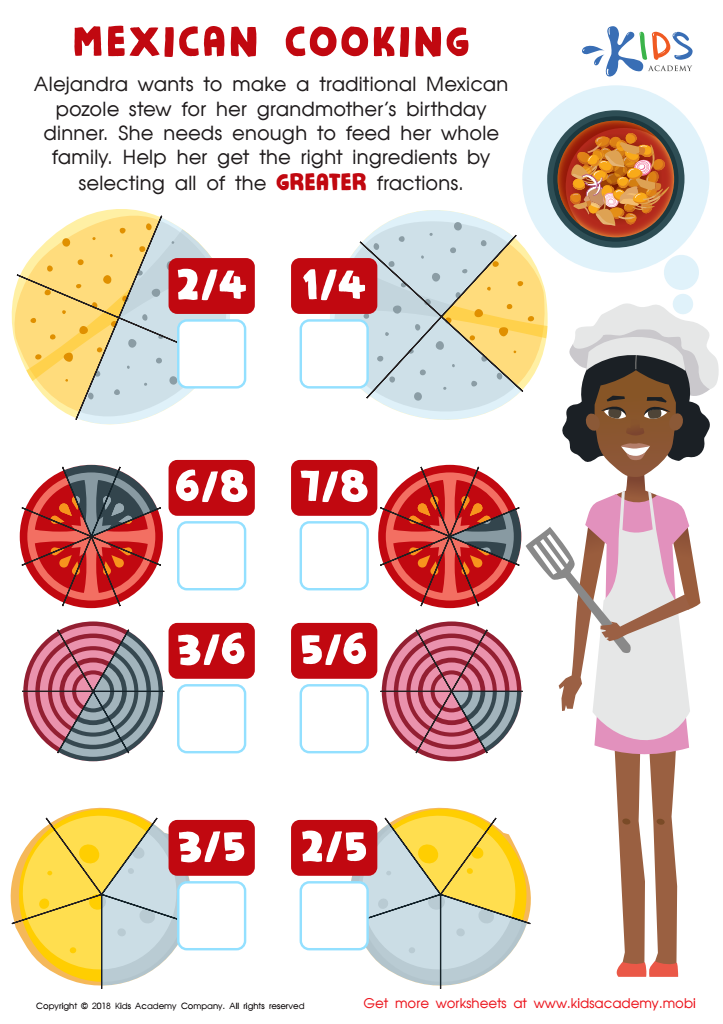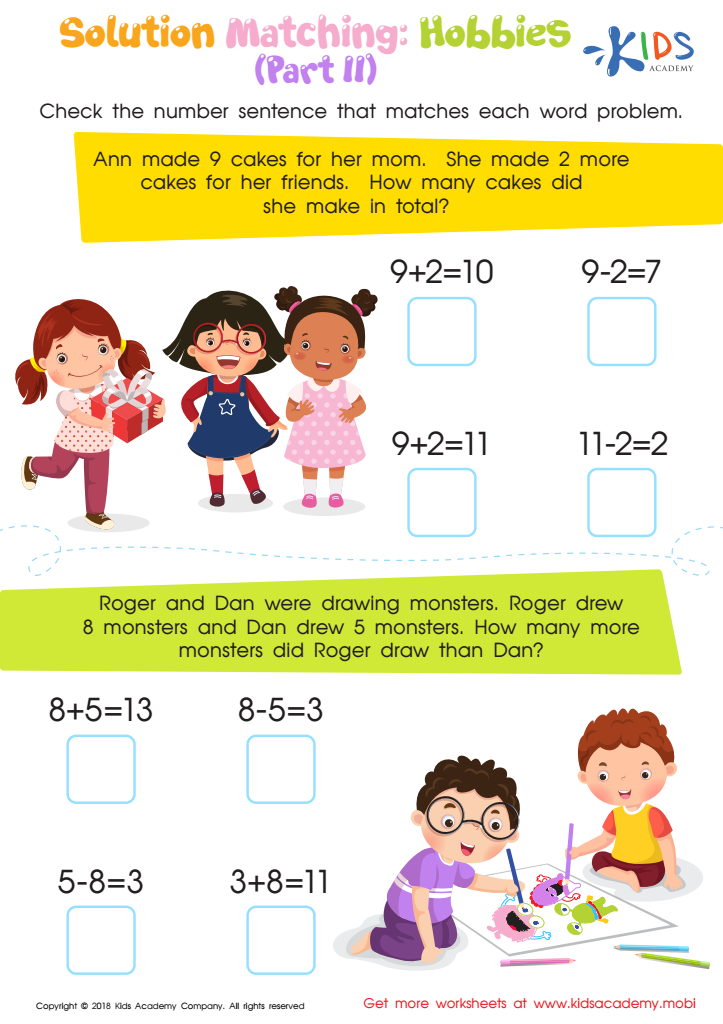Vocabulary Building Numbers Worksheets for Ages 3-8
3 filtered results
-
From - To
Enhance your child's numerical literacy with our Vocabulary Building Numbers Worksheets for Ages 3-8. Designed with young learners in mind, these printable worksheets make understanding numbers engaging and fun. Each activity focuses on improving vocabulary, ensuring kids grasp number names, recognition, and usage in everyday scenarios. Bright illustrations and interactive tasks keep children entertained while reinforcing their math and language skills. Perfect for parents and educators seeking valuable resources to support early learning stages. Watch your child confidently master numbers and communication, setting a solid foundation for future academic success. Download now and start building smart learning habits today!


Fairy Tale Worksheet: Count and Classify with Rapunzel


Mexican Cooking Worksheet


Solution Matching: Hobbies. Part 2 Worksheet
Vocabulary building in young children ages 3-8 is crucial for several foundational reasons. First and foremost, an extensive vocabulary enhances communication skills. When children have a rich bank of words to choose from, they can more accurately express their thoughts, needs, and feelings, which is essential for both social interactions and academic success.
Secondly, vocabulary development supports reading comprehension. As children encounter new words in books or spoken language, being able to understand and decode them directly impacts their ability to grasp the meaning of texts. This is fundamental to their overall literacy development.
Additionally, early vocabulary acquisition lays the groundwork for lifelong learning. During these early years, children's brains are highly receptive to language, and the words they learn now form the basis for future language skills. Being proficient in vocabulary also influences critical thinking and cognitive skills, as children who understand more words can grasp new concepts more easily.
Lastly, vocabulary building fosters curiosity and a love for learning. Encountering and mastering new words can make the learning process exciting and engaging, encouraging children to explore and ask questions about the world around them. Therefore, parents and teachers should prioritize vocabulary development to give children the tools they need for effective communication, academic achievement, and a passion for learning.
 Assign to My Students
Assign to My Students


%20(1).jpg)













